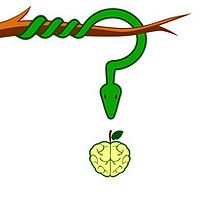Learning Your Mental Limits
By Justin Simmons - Dec 5, 2023

The human brain is exploratory, brilliant, and complex but it also has its limitations. I would love to state the opposite and drive home a message of the limitless mental abilities we all possess but that would be short-sighted. The simple truth is that we’re all still human and by our very nature, limited by our brain’s standard operating practice. This is not to say we’re incapable of bursting through such barriers but we must become aware of their existence before expecting to exceed their influence.
Learning about ourselves and all that our ambitions entail is critical to the process of self-fulfillment. Often, we get down or become critical of our actions based on a lack of self-worth. Even for the most confident individuals, vulnerability can be hidden under layers of suppressed emotions, quietly awaiting a moment of weakness. Make no mistake, there will be times that test us all. Preparation and a steady mind can help to minimize the impact of these adversities but most importantly, provide the insights necessary to know our limitations are normal and possible to overcome.
When evaluating an otherwise healthy brain capable of full cognition, inherent limitations still exist. To consolidate the focus of this discussion, I have summarized a series of topics into what I have termed ‘The Five Key Areas of Mental Limitation’:
1. Processing Power – The brain performs approx. 10 million times slower than the average computer. This means we will take longer to analyze and process data which limits our ability to make quick decisions. Not to discount the way we process information; we can evaluate factors a computer is incapable of interpreting.
2. Attention – Given the rate at which our brain processes information, we can quickly become distracted by overstimulation. The limitation of our ability to pay attention for long durations will impact our focus on individual tasks.
3. Memory – Along with the limits of processing, we then compound the issue when attempting to store and retrieve this information. The brain actually has substantially more storage capacity than computers and instantaneously downloads the information through synapse links (never cells). Whereas a computer requires added hardware to store and scale. However, we still become limited in our capacity to remember as we can lose or distort memories over time.
4. Emotion – Perhaps the most volatile of our limitations. Here in the emotional arena, we watch impulse collide with rational thinking. Information will become skewed when we allow emotion to influence our decisions and even the strongest processing power will be challenged by a human temper.
5. Cognitive Bias – The way we learn often leads to persuasive behaviors. Our surroundings mold us and create certain tendencies for how we make decisions. This then limits our ability to interpret situations to their fullest extent or purest intent. Even the slightest bias can impact the way we perceive the world.
By identifying these areas and better understanding our inherent limitations, we can begin to take the proper actions in our daily lives to ensure we stay on the offensive. Maintaining a proactive approach versus a reactive stance will help offset such limitations. It starts with recognizing our weaknesses and developing a willingness to do something about it.
Our mental outlook directly influences our physical abilities. By the time we take any action, our brain has already processed billions of calculations. Taking a moment to pay due respect, the brain is estimated to operate at 100 teraFLOPs per second and possibly upwards of an exaFLOP. I’ll leave those numbers to the mathletes who wish to better evaluate what a billion-billion looks like. Lucky for us, we don’t have to waste time counting these calculations, our brain is doing it for us, right now on its own.
Perhaps the most amazing statistic in all of this is that over 60% of people never take the time to write down a plan for their future. Knowing we’re easily distracted with short attention spans, wild emotional tendencies, memories that may not serve us optimally, and biases that could go undetected; how do we expect to maintain direction and ever succeed without a plan we can refer to?
The harsh reality is we’re far less likely to achieve our goals without a plan. I could venture to say most reading this article have probably spent more time writing down plans for throwing a party or going on vacation than documenting the long-term goals they wish to accomplish. It's easy to understand why, we’re excited about the things that excite us. In theory, our hopes and dreams do excite us, but the probability ratio and efforts required over an extended period pose an instant limitation. The fact we know our goals are difficult to achieve ignites our brains to think defensively.
The brain's greatest attribute is also its largest limiting factor. Its commitment to self-preservation is unrelenting. Sadness, disappointment, challenges, and risks are all examples of things the brain recognizes as poor choices and a waste of energy to worry about. As situations arise that pose such potential threats, we suddenly find creative ways to justify postponing or avoiding these difficult decisions. This is where we must rewire our thinking pattern to stop focusing on the unachievable and recognize the believable.
When building a plan for the future, the craft is to reverse engineer long-term goals into smaller tasks or items that set standards for daily progress. This allows us to back into the plan and track progress through incremental growth. Our ‘T.E.A.M. Minute Manager’ is one example of a tool to execute this strategy but there is no wrong answer as long as you’re willing to commit to writing down a plan of action. Once completed, the plan will serve as a point of reference to keep on track. This is how we maintain a level of focus that helps to break through our limitations.
The process of learning our limitations is dynamic. We’re constantly evolving as individuals and seeking new experiences. These environments will keep us guessing but this is why life is so exciting. We can’t allow unknowns to hold us back. The human spirit is innovative and therefore we will continue to reinvent who we are as individuals and as a society. All growth requires surpassing existing limits. We all have the ability to set goals and pave the path required to move forward. Along that path, there will be challenges, no need to waiver, you already know this. You’re capable of exceeding limitations, start by preparing for them. Are you ready to discover the power of your mindset?




















